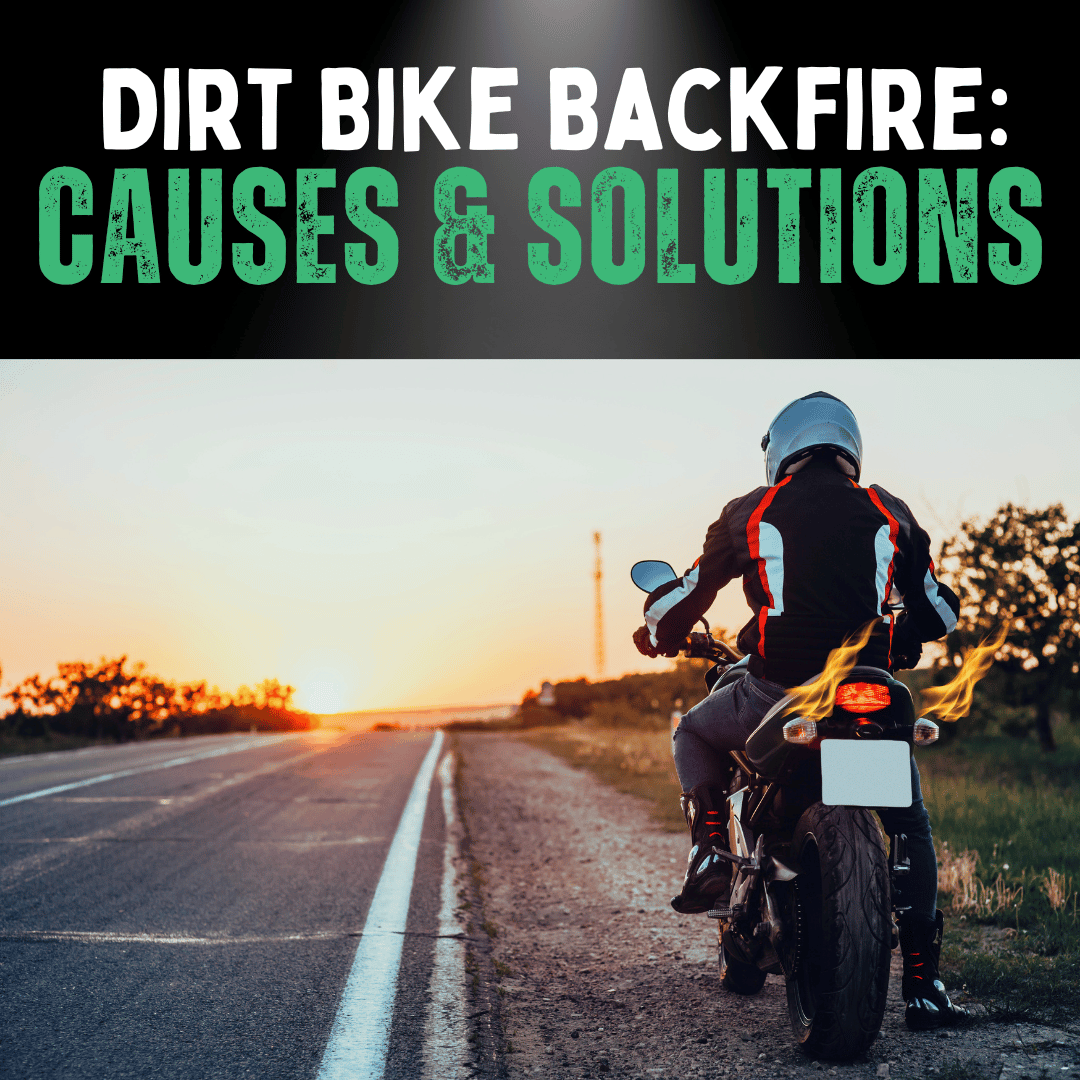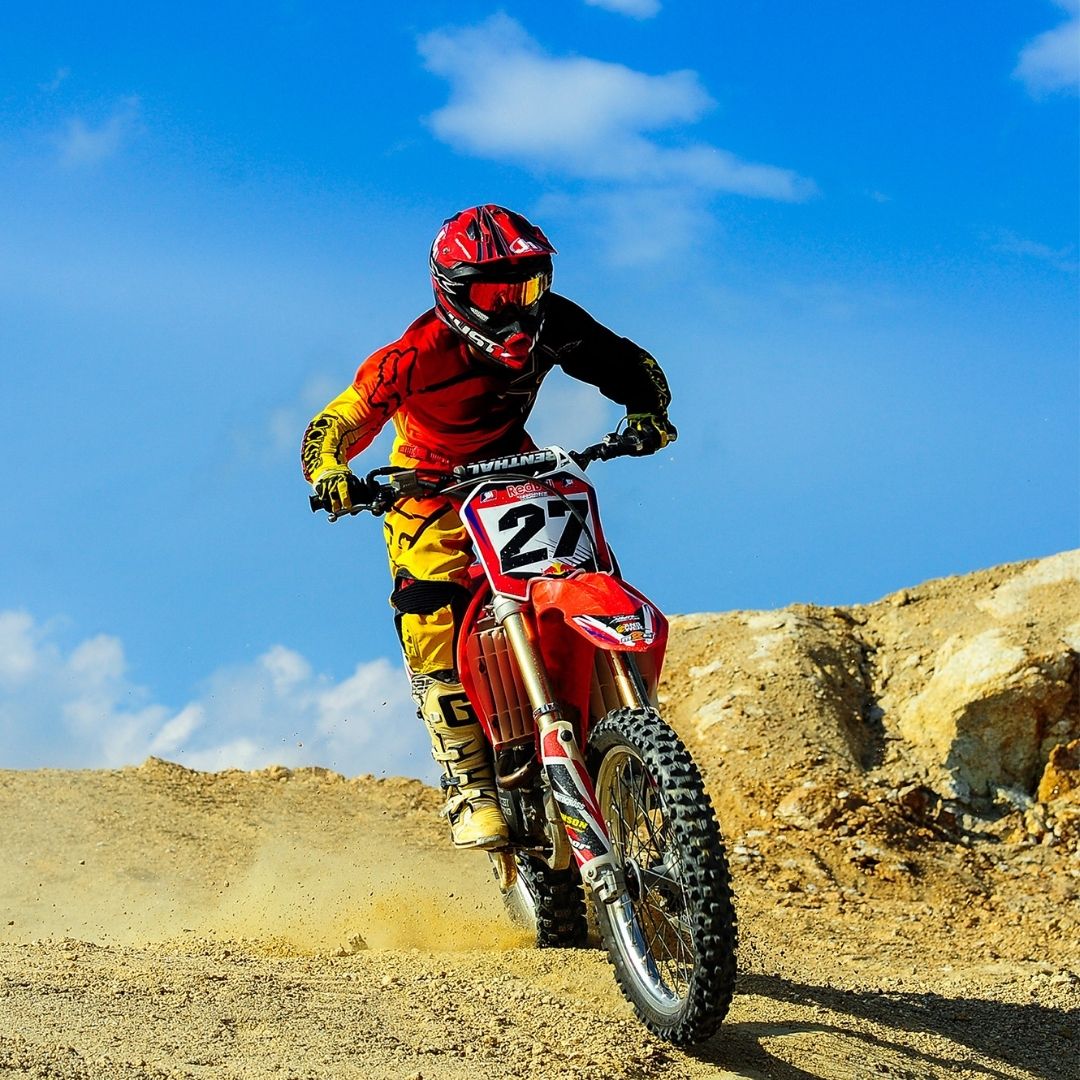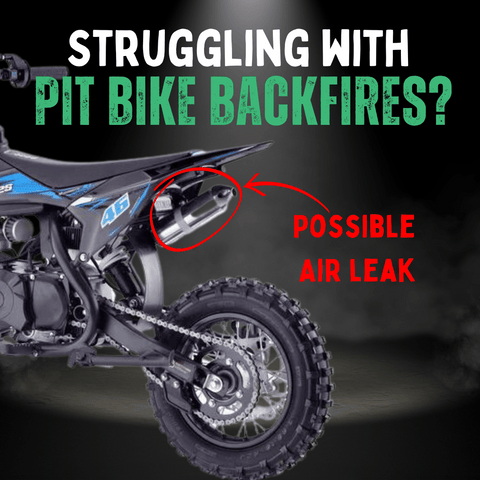
Published: August 17, 2023
Updated: March 24, 2025
You’re cruising on your dirt bike, feeling the thrill—then pop! A backfire disrupts your ride.
Why does this happen, and how can you fix it? Let’s break it down in this 2025 guide.
Key Cause: Backfiring often stems from an imbalanced air-fuel mixture—too much air or fuel can cause those pops.
Why Dirt Bikes Backfire
That sudden "pop" isn’t just annoying—it signals an issue. Identifying the cause saves you from endless guesswork.
Safety First
Before troubleshooting, prioritize safety—work in a ventilated space, avoid flammable materials, and wear protective gear. Related: Petrol Bike Safety.
Causes and Fixes for Backfiring
1. Poor Air-Fuel Mixture
An imbalanced mix—too much air or fuel—causes backfires, like a fire struggling with damp wood.
Signs: Stuttering or stalling.
Fix: Clean or replace the carburetor, spark plugs, or air filter. Check the airbox for blockages. Related: Clean Air Filter.
2. Incorrect Idle Speed
If the idle speed is off—too high or low—it’s like a guitar out of tune.
Signs: Engine feels sluggish or overly revved.
Fix: Adjust the idle speed per the manual—here’s how.
3. Lack of Compression
Low compression means power loss—like a weak heartbeat in your engine.
Signs: Reduced power, hard starting.
Fix: Test compression; replace worn piston rings or valves if needed.
4. Exhaust System Leaks
Leaks in the exhaust disrupt the flow—like a hole in a musical instrument.
Signs: Hissing or extra noise from the exhaust.
Fix: Inspect for leaks, seal small ones, or replace damaged parts. For two-strokes, clean exhaust ports regularly. Related: Pit Bike Backfires.
5. Dirty Carburetor or Jets
A clogged carburetor is like a stuffy nose—your bike can’t breathe right.
Signs: Spluttering or inconsistent performance.
Fix: Clean the carburetor and jets; adjust jetting for a balanced mix. Related: Motorcycle Backfire Causes.
Preventing Backfiring
Maintenance Tips
- Before Rides: Check tyres, brakes, and chain.
- Weekly: Clean air filter, inspect spark plug.
- Monthly: Change oil, clean carburetor, check fuel system.
- Yearly: Rebuild top end (two-strokes), replace fork oil.
Diagnostic Tools and Techniques
- Compression Tester: Check engine health—normal is 120-200 PSI.
- Multimeter: Test battery (12.6V) and ignition coil resistance.
- Spark Plug Tester: Look for a strong blue spark.
- Fuel Pressure Gauge: For fuel-injected bikes, verify pressure.
- Visual Check: Inspect wires, fuel lines, and air filter.
Use these tools to pinpoint backfiring causes accurately!
Common Mistakes to Avoid
- Skipping Diagnostics: Test first—don’t guess.
- Wrong Tools: Use a torque wrench to avoid damage.
- Ignoring Safety: Work in a ventilated space, wear gear.
When to Call a Pro
If backfiring persists with power loss or starting issues, seek a mechanic. Regular maintenance prevents bigger problems—like a doctor’s check-up for your bike.
Backfiring vs. Afterfire
- Backfiring: Loud pops from an imbalanced air-fuel mix igniting in the exhaust.
- Afterfire: Softer pops from engine residues or compression issues.
Conclusion
Backfiring can disrupt your ride, but it’s often a simple fix—like balancing the air-fuel mix. Tackle the cause, and get back to enjoying your dirt bike in 2025!
FAQs
Is my air-fuel mixture lean or rich?
Check the spark plug: black means rich, white means lean, tan is ideal.
How do I check my spark plug?
Remove it—tan/light brown is good; white or black indicates mixture issues.
How often should I clean the carburetor?
Every two weeks for dusty rides, monthly for light use.
Can backfiring damage my engine?
Yes, persistent backfiring can harm the engine and exhaust—fix it promptly.
Ready to Ride? 🚀
Loved “Why Does My Dirt Bike Backfire?” Want more bike tips?









Share:
10 Reasons Why Your Dirt Bike Won't Start & How to Fix
Do They Still Make 2 Stroke Dirt Bikes Today? (Answered)